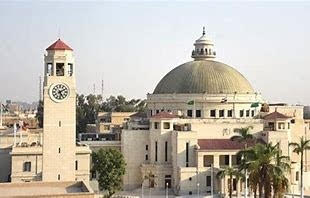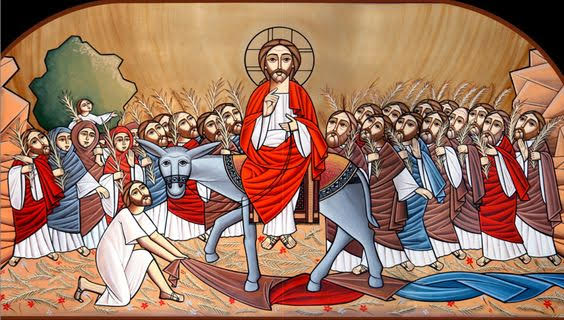It’s an open secret that scientific researchers in Egypt assiduously seek an opportunity to work outside the country and that once they get that opportunity there’s a near-certain chance they wouldn’t be coming back to Egypt. If anything, this gives two obvious indications: that Egyptian researchers are much in demand abroad, and that Egypt is research-unfriendly. Watani decided to explore the issue.
In demand
Advanced nations, fully aware that scientific research is vital to their economies and societies, give it priority status. Not only do they develop research work, but they also do their best to attract scientists from all over the world.
Among those most in demand in the various scientific fields are Egyptian scientists. According to Hany al-Nazer, former head of the National Centre for Research, there are some 16,000 Egyptian scientists in the USA and Canada, with a further 17,000 in Europe and the Far East, including Japan. This brings the total number of Egyptian scientists working in research centres or universities abroad in these parts in the world to 35,000, apart from other Egyptians working in medicine or engineering.
Dr Nazer says that most scientists leave Egypt because of the slump in funding for scientific research at home over the past 60 years, as well as the shortage of necessary equipment and facilities.
“In the West, for instance, researchers are provided with all possible means to make their research a success, whether through funding or technical means. Young researchers from Egypt therefore feel the desire to emigrate to advanced countries for the research-friendly climate and good financial compensation,” Dr Nazer says.
“In Egypt there are 130,000 scientists who can do excellent work in research and innovation, but the State has yet to make scientific research pay.
“Yet I am today optimistic, since President Abdel-Fattah al-Sisi announced his concern about scientific research and said that 1 per cent of the national income was to be allocated for this purpose, according to an item mentioned in the 2014 Constitution.”
Nobel Prize winner
“Ahmed Zewail is an Egyptian scientist who won the Nobel Prize in chemistry in 1999 for his marvellous work in physical chemistry, the first Egyptian to win such an accolade in the scientific field,” Dr Nazer says. “Dr Zewail is known as the Father of femtochemistry, which brought much profit.”
Ali Rabie, head of the syndicate of Egyptians working outside Egypt, says in his organisation’s latest statement that the number of Egyptian scientists abroad has reached 86,000. “Forty-two of them are university presidents, and 180 scientists work in the field of atomic energy in several countries in the West. Some 100 of them live in the USA; 50 in Canada; and 20 in various countries of Europe, as well as nine scientists who represent Egypt at the Vienna-based International Atomic Energy Agency (IAEA). In this regard it may be interesting to note that the Egyptian Dr Mohammed ElBaradei, who was Director General of the IAEA from December 1997 until November 2009 and won the Nobel Peace Prize in 2005, is no scientist as many in Egypt think; he is a lawyer.
“Many scientists have achieved prominence in the fields of technology, medicine and scientific research. They are not well known in Egypt, largely because of their distance from home and the none-awareness of the Egyptian media,” Dr Nazer says.

Poor budget
The Egyptian Dr Samir Banoub is a major consultant on health care. He helped put together the health programme for President Barack Obama and has also brought his skills in shaping health plans in 71 Arab and European countries including Syria, Kuwait, Libya, Sudan, Russia and Greece. Dr Sherif al-Safti is another Egyptian scientist who is a professor at Waseda University in Japan, while Dr Mohamad Zuhni Farrag is a professor of open heart surgery and fellow of the Royal College of Surgeons in the United Kingdom. Dr Farrag innovated a medical pillow named after him which is used to cool the heart muscles during surgery and has reduced the time for transferring heart valves.
Abdullah Surrour, founder of the Syndicate of Egyptian Scientists, believes that research scientists are leaving because they feel “imprisoned inside their laboratories” with equipment that is outdated, inefficient, and in need of maintenance.
“There is a poor budget,” he says. “There is no researcher in the whole world who could do his job with such small sums. The finances allocated to scientific research are mainly spent on salaries, and even these are too low compared to international standards or even to working in the private sector in Egypt.
As for the allocation of 1 per cent of the national income to scientific research, Dr Surrour points out that we have to wait for three more years for this to be implemented, “So far, nothing has been done,” he says.
“While this goes on in Egypt,” he says, “advanced countries respect scientists and afford all the requirements for research. All these matters are ejecting Egyptian scientists from their homeland.”
Experience in Kuwait
Former Minister of Scientific Research Venice Kamel Gouda told Watani that, unlike advanced countries, Egypt does not connect scientific research with the service of the State, the people or the economy. Scientific research in Egypt is merely published in scientific periodicals and then shelved.
“Such conditions thus lead Egyptian scientists to seek better opportunities abroad,” Dr Gouda added. “For six years I was a professor at the Kuwait centre for scientific research, where I earned ten times my salary when I was a minister in Egypt. Moreover, in Kuwait I was given many benefits like free housing in an upscale area, free medical care and the opportunity to enrol my children in the best schools and universities in Kuwait, free of tuition fees. I still remember two Egyptian scientists I met there who had left Egypt and never came back: the first was Dr Hamdy Shalaby who was doing a master’s degree in construction, and the second was Dr Wadeed Abu-Halaqa who was one of my students.
“The 1 per cent allocated by the State for the scientific research budget is a good first step, but it does not come near the budgets allocated to research in advanced countries. Billions are needed for the equipment and technology required for scientific research.
“So in order to take advantage of this portion and to get scientific research back on the right track, the State should put forward a clear policy for scientific research and its requirements, and start using it to solve problems until it gradually ends up being financed out of its profits.”
Protocols
Watani asked Dr Gouda if the answer to the scientific research predicament in Egypt could be the enactment of protocols with research centres or universities in other countries for joint research projects to be done in Egypt. This way Egyptian researchers could work inside Egypt on well-financed and well-equipped projects where they would find adequate financial compensation. At the same time, foreign research centres would benefit from the pool of high calibre Egyptian scientists and researchers.
“Such protocols already exist,” Dr Gouda said, “but they are not adequately executed on the ground. “The real answer lies in the hand of the State to put scientific research on its priority list and draw up a plan for its gradual promotion.”
Watani International
13 May 2015















